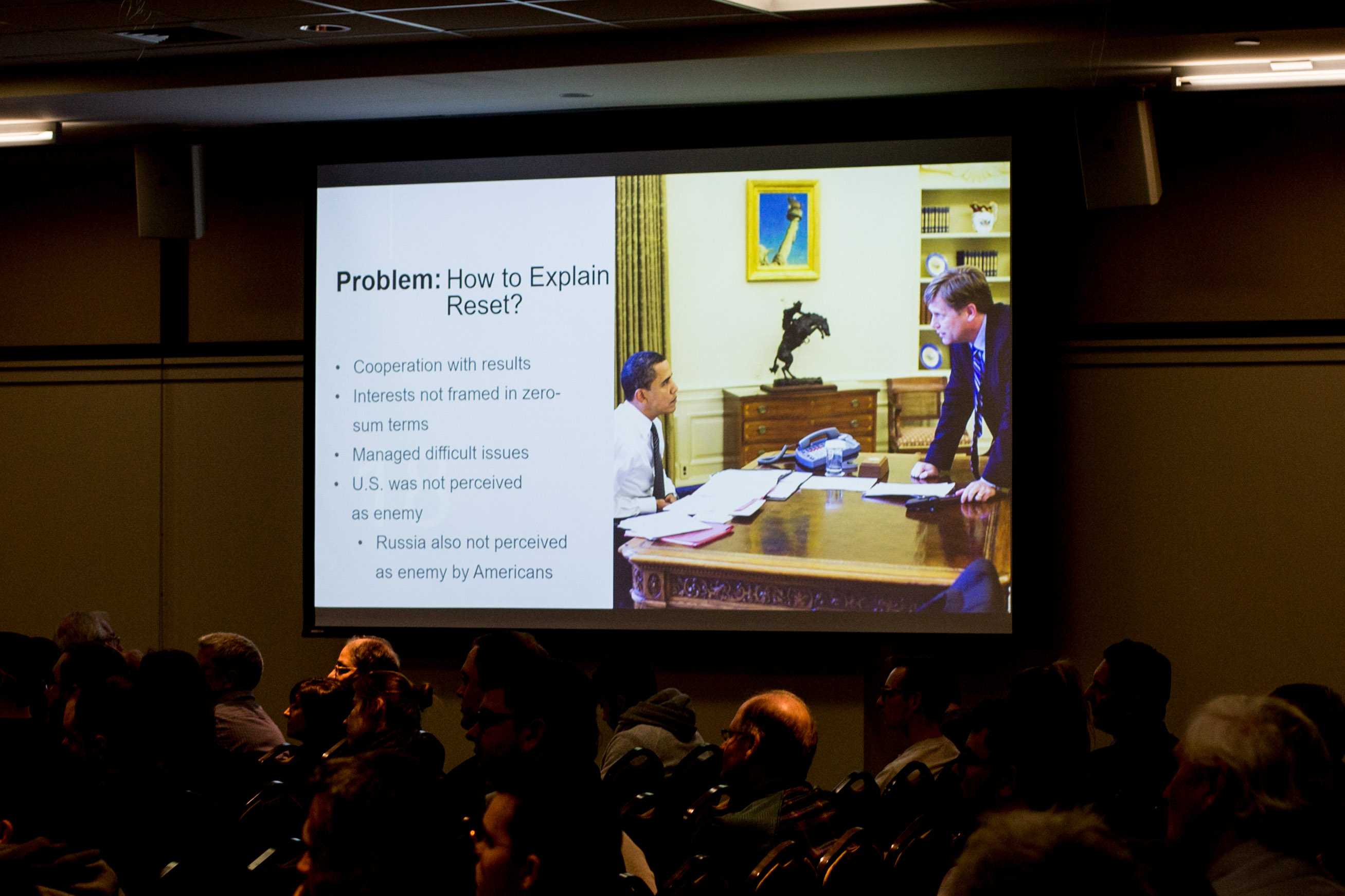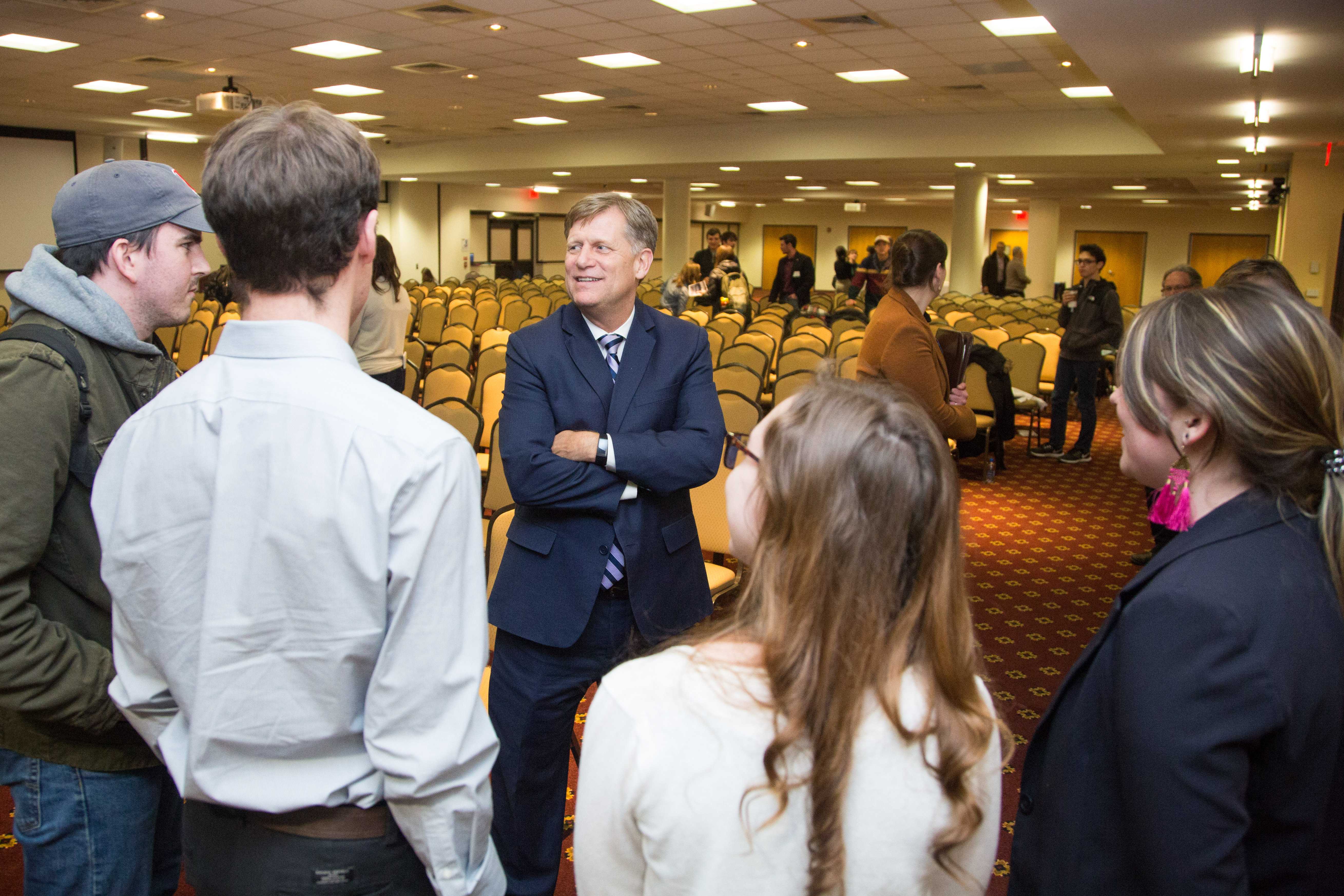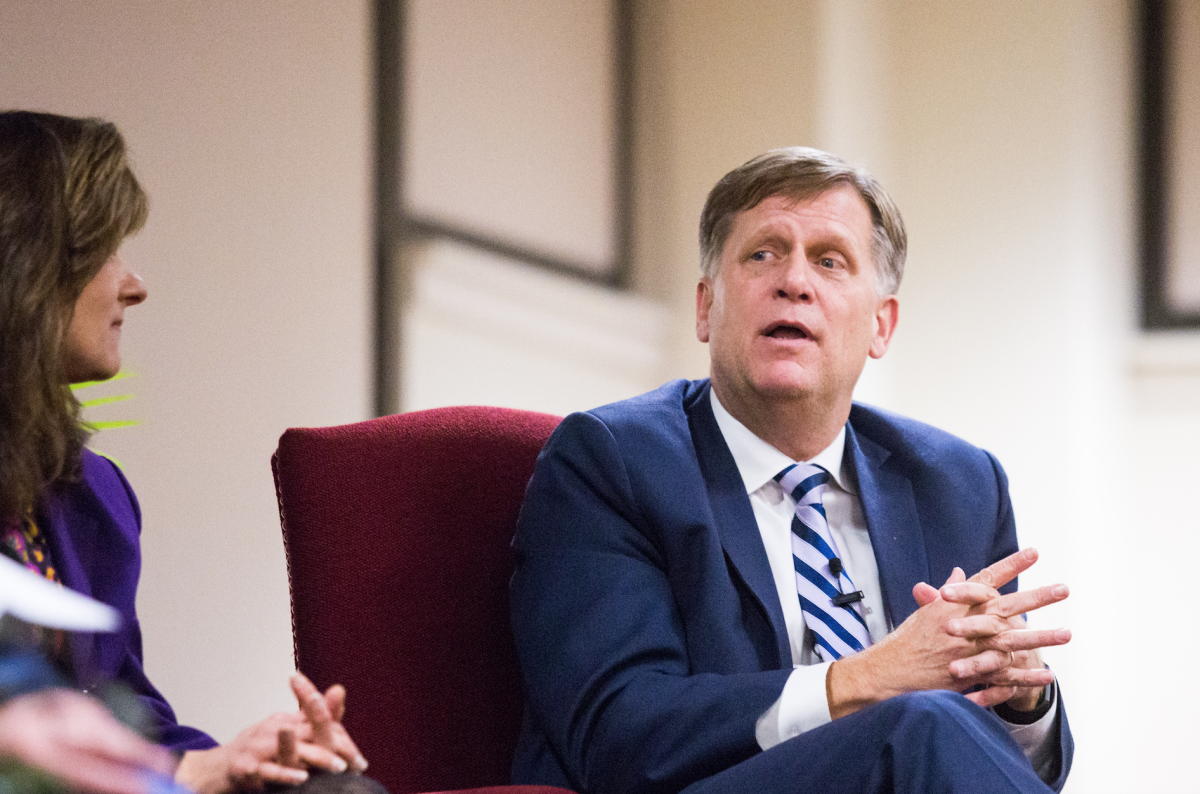Michael McFaul lectures on U.S./Russian relations
Michael McFaul, former United States ambassador to the Russian Federation gave a keynote lecture in Doyle Banquet Hall of Campion Student Center on Dec. 5.
McFaul is the author of “From Cold War to Hot Peace: An American Ambassador in Putin’s Russia,” and spoke about his time as an ambassador in 2012-2014 and how the U.S. and Russian relationship has developed.
Throughout the lecture, McFaul attributed the current tensions in U.S. and Russian relations to Russian domestic politics.
“Putin is a zero-sum guy,” McFaul said. “We are a competitor on a good day and the enemy on most days. We are the ones that destroyed the Soviet Union in his eyes. He believes the U.S. uses covert and overt force to overthrow regimes we don’t like.”
The nature of the view Putin has of the United States has contributed to Putin’s paranoia, according to McFaul.
“[My wife and I] had to live our lives in this beautiful mansion but every email, every phone call, every moment we made, we had to assume were recorded,” McFaul said.
Alina Polyakova, Ph.D., adjunct professor of international relations at John Hopkins University, and Lisa Baglione, Ph.D., professor and chair of political science at St. Joe’s, joined McFaul for the panel that followed the keynote.

Baglione spoke on how President Donald Trump further complicates the situation.
“What worries me is that Trump thinks that foreign affairs and running the government is like running a family business,” Baglione said. “He does not understand the way states would or should negotiate with one another and that you can’t always get your way. That is highly problematic in today’s world, where power can’t determine everything.”
Throughout his address, McFaul made a direct appeal to the students in attendance.
“I worry that not enough young people in the country are not engaged enough in international affairs,” McFaul said in an interview with The Hawk. “They are taking for granted stability in the world and security in the world that I think is way more precarious. We’re only going to have smarter policies if we have smarter students being engaged in those debates.”

For some students in attendance, the keynote and panel proved to be effective tools in furthering the education on the topic.
“I think it’s really important for college students to see the real world implications of this,” Chelsea Smith ’20, an international relations major, said. “I think a lot of times, students don’t realize the risk you are taking on as a risk to our country and just how important it is to be a good representative and take these issues seriously, and how vital and necessary that is in our time.”
The event was in partnership with the World Affairs Council of Philadelphia and the Carfagno lecture series.
Ana Faguy ’19 contributed to this story.















































